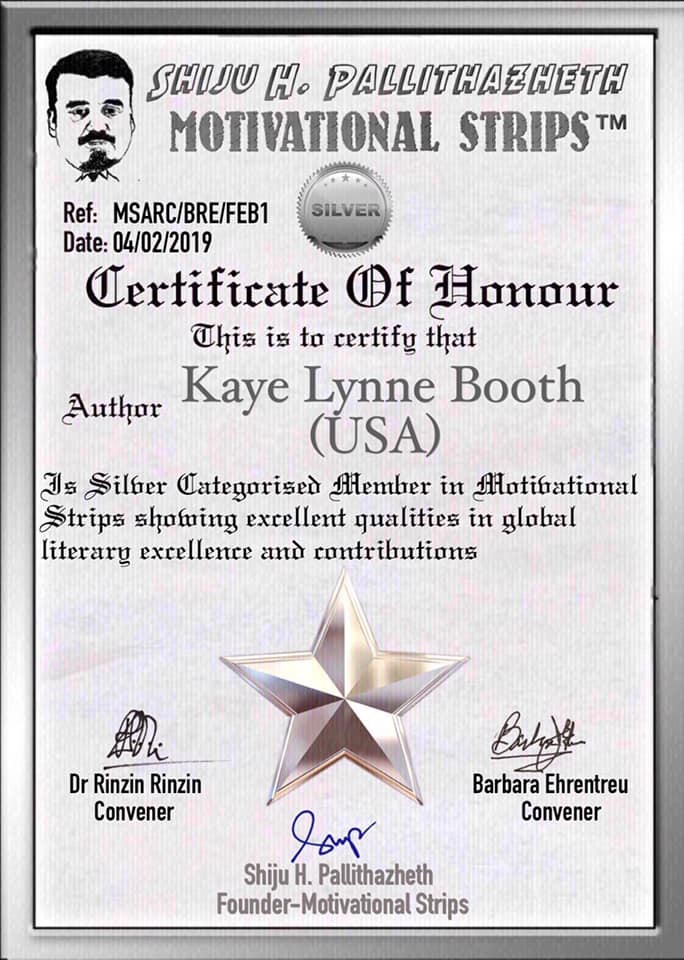Jeff’s Pep Talk: Permission to Quit Granted – Alternative Means of Expression: Part II
Posted: January 2, 2019 Filed under: Inspirational, Pep Talk, Uncategorized, Writing Process 2 Comments
Permission to Quit Granted – Alternative Means of Expression: Part II
By Jeff Bowles
The first Wednesday of every month, science fiction and horror writer Jeff Bowles offers advice to new and aspiring authors. Nobody ever said this writing thing would be easy. This is your pep talk.
A couple months ago, I talked about YouTube and alternative ways writers can express themselves in order to clear out writer’s block or perhaps simply gain perspective on career or creative issues. I consider the writer’s life a long-haul experience. Very often, we go through bursts of creativity and sheer writing bliss, only to end up in a long, slow burn of doldrums and low output. The first five to ten years of any writing career are all about figuring out our voices, our skill-levels, our likes and dislikes, and most importantly of all, our individual thresholds for, let’s say, soul-crushing rejection. After that, ultimate longevity is kind of a crap shoot, right? Well, sort of.
The workhorse model for professional writing doesn’t suit everyone. You may not believe me on that, but trust me, pragmatic holistics matter. Yes, in general it’s best to stay productive and avoid periods of low output, but it’s also a bare bones fact people seek and find inspiration in their own unique ways. For instance, it’s not uncommon for some very successful authors to disappear from the literary scene for years or even decades at a time, only to return in incredible, blinding flashes of brilliance. What do they get up to during those so-called creative droughts? Mostly, on an internal level, they live and experience a few more things until they feel they have something new to say.
If you’re the kind of writer who must hit the brakes every now and then, and by the way, I count myself among you, it may come as a surprise that there doesn’t exist a whole lot of information and support for your way of doing things. The workhorses of the world would have you believe you’re failing if you don’t put down your 2,000 words every single day. But you aren’t. Trust me on this. You’re still doing the job. Even quitters are doing the job. You’re smelling the roses, paying the mortgage, getting married, divorced, remarried, having kids, whatever it is. In essence, you’re telling the story so you can, you know, tell some more stories.
Quitting is a misnomer anyway. I’m not sure good writers ever actually quit. We say we want to, go through the motions, but sooner or later, the bug bites us again. Shamefully, we may disappear into our little domiciles and caverns and pine away for all the stories we never got to tell. But this attitude is borrowed, I can assure you, from a culture that sees reflection and seclusion as things slightly lower than sin.
Just quiz yourself for a moment. The last time you got yourself into a writing funk, wasn’t it because you had something bigger to do? You had to work on your insecurities or your fear of success, or maybe your great aunt died and left you a billion coupons for that buffet place she loved so much but that only serves your favorite brisket on Sundays. An unlikely scenario, sure, but you get the point. Writing doesn’t occur in a vacuum. As much as we may dislike the idea, every word we lay down reflects who we are, who we’ve been, what we believe and value, and the places we yearn to go.
It all depends on your purpose as a storyteller. Does anyone really have a purpose in this world? Yes, I believe we do, though you may feel free to disagree. As an avatar of the workhorse archetype (Family: workhardimus, Genus: unflappabilititus), your purpose may be to write whatever, however, whenever, and for as much money and prestige as possible. A worthy fate if there ever was one. If, by way of alternate example, your countenance and mean represent the BIG IDEA archetype (Family: trickleinspirationmaximus, Genus: deletekeywornout), you may make a habit of cooking a single manuscript for fifteen years before realizing it was good enough to show people eight years ago.
Is there a wrong or right answer here? I don’t think so. Is one of these writers lazier than the other? Arguably, but I don’t think dedication is the ultimate watch word. We’re looking at the sum rather than the parts here, and that makes all the difference.
Art, like life, is a product of time and gestation, and some ideas simply can’t be rolled out in the span of a few months or a few years. Let’s say all you want to write about is a clan of trolls that need to hatch a plan to infiltrate the King’s armory (why not? Substitute a diatribe for or against the Trump Administration, if you like). Every one of your writer friends tells you to plug away until the damned thing is finished, but instinct screams at you to put the story away because you don’t fully understand family dynamics during wartime, social patterns in relation to ground-dwelling malcontents, or the trials and tribulations of Diet Coke-swilling Presidents. I’m telling you to follow the instinct.
The relative complexity of the story you want to tell and your ability to execute it depend entirely on where you’re at as a person and a creator. An eighteen-year-old could write her magnum opus as easily as a fifty-year-old, it’s just the soul of one finds itself prepared many years prior to the soul of the other. So prep your soul a little. Here’s my recommendation if you’ve tried the 24/7, 365 model and found it wanting: live a little between projects. Forget what you’re working on right now, shelve it; yes, I’m giving you permission to quit. Here’s a real test of mettle. Can you forget all about your big dream? Can you go back to being a regular civilian non-writing-combatant? Knowing in the back of your mind when you return to work at some distant point in the future, you’ll be changed, the world will have changed, you’ll have packed on a few years, losses, wins, regrets, and that your stories will thank you for it?
Sometimes alternative means of expression require us to express nothing at all. To me, making something from nothing is a lot like breathing. The inhale, the brink, and then at last, the release and relief of a nice grateful exhale. Take in oxygen like a prize fighter or a Buddhist monk. Breathe until your belly fills with all the desire and longing you can stand, and then let it rightfully explode. Awaken to the possibility of laziness. I mean that. Sit on your butt and watch The Price is Right, or go to work every day and pretend to care about earning a living. In one hundred years you will be dead. Sorry if that’s a bit of a spoiler. Now did you write two books or forty? Would you rather have written fifty? No doubt, but tell me, was it your role to do so? Were you driven to do it? And can you really call that life of yours a waste because you lived how you were compelled to live?
To be blunt, don’t live by other people’s standards. Just in general, don’t do it. If you’ve got the drive and the nerve to chase your star, chase it as hard as you can. But if survival and struggle are all you know and you’re damn tired of it, understand there’s nothing to be gained by producing a mountain of crap for your name to sit atop as you relax into a neat pile of old bones. Individuality is far more central to our world than most people have the ability to recognize. One-size-fits-all only works in plumbing fixtures and baseball caps. Don’t knock yourself out with this story or even the next. Put it down if you need to. Put it down. Put it down. Put it down.
Then go for a walk and pick up a winning lottery ticket, meet the love of your life, or get an autograph from the leader of the free world that sends you reeling back through space and time to meet the man who invented Diet Coke. Stranger things have happened. I’m sure of it. Until next time, everyone.
Check out Jeff Bowles Central on YouTube – Video Games – Music – Entertainment – So Much More!
Want to be sure not to miss any of Jeff’s Pep Talk segments? Subscribe to Writing to be Read for e-mail notifications whenever new content is posted or follow WtbR on WordPress.















This is a great post because it is so true. Working non-stop isn’t good for you no matter what field you’re in, and being a writer is no exception. It’s important to take a break and allow yourself to re-energize and regroup. The following article offers “14 Science-backed Reasons to Disconnect over the Weekend”: https://www.success.com/14-science-backed-reasons-to-disconnect-over-the-weekend/
LikeLiked by 1 person
[…] the first article, I talked about creating new non-writing projects to jumpstart your inspiration, and in article two, I shared the perspective that sometimes the best thing you can do for yourself in the face of […]
LikeLike